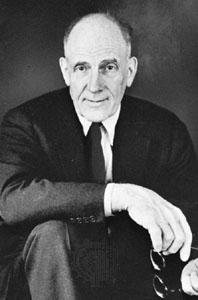Wallace K. Harrison
| Wallace Harrison | |
|---|---|
 |
|
| Born |
Wallace Kirkman Harrison September 28, 1895 Worcester, Massachusetts |
| Died | December 2, 1981 (aged 86) New York City, New York |
| Nationality | American |
| Alma mater | École des Beaux-Arts, Worcester Polytechnic Institute, Boston Architectural Club |
| Occupation | Architect |
| Awards | AIA Gold Medal (1967) |
| Practice | Harrison & Abramowitz |
| Buildings |
United Nations headquarters Exxon Building |
| Projects |
Rockefeller Center Lincoln Center for the Performing Arts |
| Design | Trylon and Perisphere |
Wallace Kirkman Harrison (September 28, 1895 – December 2, 1981) was an American architect. Harrison started his professional career with the firm of Corbett, Harrison & MacMurray, participating in the construction of Rockefeller Center. He is best known for executing large public projects in New York City and upstate, many of them a result of his long and fruitful personal relationship with Nelson Rockefeller, for whom he served as an adviser.
Harrison's work in the mid-twentieth century comprised large, modernist public projects and office buildings. As a young man, Harrison took classes in engineering at Worcester Polytechnic Institute and in architecture at the Boston Architectural Club; he studied at the École des Beaux-Arts in the early 1920s and worn the Rotch Taveling Scholarship in 1922. He worked for McKim, Mead & White and Bertram Grovesnor Goodhue from 1916 to 1923, and later formed a series of architectural partnerships. Harrison participated with the architectural teams designing the art deco Rockefeller Center complex in New York City, completed in 1939. His brother-in-law was married to John D Rockefeller'Jr's daughter, Abigail and Harrison serve as a designer and architectural adviser for Nelson Rockefeller, notably in the years when Rockefeller was governor of New York.
In 1941 Harrison joined with Max Abramowitz to form the firm of Harrison & Abramowitz. In partnership with Abramovitz, Harrison designed scores of university and corporate buildings, including the Time & Life (1959) and Socony-Mobil (1956), both designated New York City landmarks.
Among Harrison's most noted projects are the Metropolitan Opera House at the Lincoln Center for the Performing Arts and the Empire State Plaza in Albany; he also served as Director of Planning on the United Nations complex, which was built on slaughter-house property contributed by the Rockefeller family (the Rockefellers owned the Tudor City Apartments across First Avenue). Harrision also developed the design for the Pershing Memorial in Washington, D.C. (today referred to as Pershing Park, and home to the United States World War I Memorial). In addition to his architectural work, Harrison served as master planner and supervising architect for a number of important Long Island-based projects, including the World's Fairs of 1939 and 1964 in Flushing, Queens, and LaGuardia and Idlewild (now John F. Kennedy) airports.
...
Wikipedia
